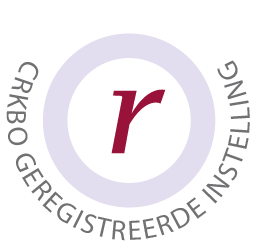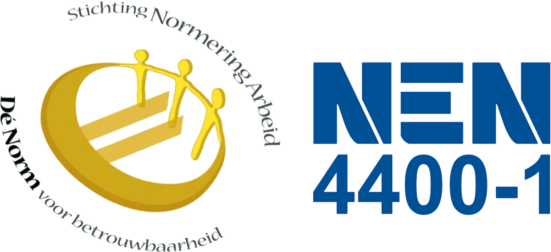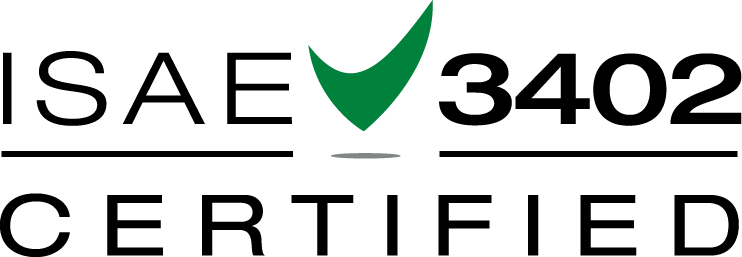Three key challenges KYC/CDD process
Getting a business account opened quickly or an investment account opened for a prospect is often out of the question. Especially when it involves a organization that operates in an industry identified as susceptible to money laundering , terrorist financing and/or otherwise vulnerable to integrity risks, it may even take months to access the account. Both for the potential customer and for the financial institution not the best start for a long-term relationship. It is also conceivable that the prospect is not welcome at all at the financial institution in question. This is not a theoretical scenario. DNB research found that by 2021, about 34,000 potential customers had been turned away from the four largest banks in the Netherlands (DNB, 2022). About 20% of this group of prospects were rejected because of the risk of money laundering and/or terrorist financing. Commercial motives and other integrity risks constituted the remaining reasons.
organization that operates in an industry identified as susceptible to money laundering , terrorist financing and/or otherwise vulnerable to integrity risks, it may even take months to access the account. Both for the potential customer and for the financial institution not the best start for a long-term relationship. It is also conceivable that the prospect is not welcome at all at the financial institution in question. This is not a theoretical scenario. DNB research found that by 2021, about 34,000 potential customers had been turned away from the four largest banks in the Netherlands (DNB, 2022). About 20% of this group of prospects were rejected because of the risk of money laundering and/or terrorist financing. Commercial motives and other integrity risks constituted the remaining reasons.
1. Tighten risk-based approach; avoid ‘overcompliance’
There is an explanation for this state of affairs. Banks and asset managers are part of the “financial gatekeepers” group. Under the “Prevention of Money Laundering and Financing of Terrorism Act” (Wwft), before doing business, designated institutions and professionals must establish and verify the actual identity of the prospective relationship aka Know Your Client/Customer Due Diligence (KYC/CDD). In principle, for a natural person, this will not have to be very complicated, apart from the issue of whether or not to request and retain a raw copy of ID proof. With (international) companies, foundations, churches, etc., however, it is sometimes very difficult to determine who is really pulling the strings.
A second important obligation of “the gatekeeper” is to conduct a so-called client due diligence on the risks of money laundering and/or terrorist financing that the provision of services to a (potential) client might entail. In general, the higher the potential risk of money laundering and terrorist financing , the more research the institution must conduct and the greater the customer demand. This risk-based approach could be even better applied, according to DNB, so that more efficient work can be done, “overcompliance,” is avoided, and entire sectors are not dismissed in advance as unacceptable risk.
2. KYC/CDD scope: more than screening risks of money laundering and terrorist financing
Not only the Wwft requires client due diligence. Institutions subject to the Wft such as banks and asset managers must avoid entering into relationships with clients that could damage trust in the financial firm or in the financial markets. After all, what you deal with you get infected with is the thought. However, the scope of integrity risks is in the Wft study is much broader and more subjective. It makes sense from an organizational perspective as well as a customer perspective to integrate the legal obligations into one KYC/CDD process, but the consequence is that it is less clear to the customer why certain data is being requested and/or what purpose it serves. In other words KYC/CDD is more than screening for money laundering and terrorist financing risks.
3. Method of client screening KYC/CDD not prescribed
The Wwft stipulates that when assessing and determining risk characteristics, the risk factors related to the type of client, product, service, transaction, delivery channel and to countries or geographical areas must be taken into account in any case. Proper matching of client screening to the risk characteristics of the prospective client also avoids unnecessary data requests from the client.
However, the manner in which the examination should be conducted is not specified in the law. Institutions can interpret this as they see fit. As a result, customers and prospects are faced with different ways of working which can lead to confusion, irritation and competitive disadvantage.
Managing challenges
KYC/CDD process
Meanwhile, based on the above, we can identify three main challenges surrounding the KYC/CDD process:
- lead time,
- customer experience,
- quality substantiation analysis and assessment.
In collaboration with several experts in the KYC/CDD field, Addition Knowledge House has developed software that, step-by-step and “responsive,” guides the user through the KYC/CDD process; DEX for Customer Due Diligence. The user does not need to have extensive KYC/CDD experience because it works with customer view-generated queries. This makes the query consistent and in line with the principle of “as little as possible” in accordance with AVG. Moreover, it is traceable (and reproducible) how the assessment was made and what sources were used.
From the point of view of supervision but also from the learning effect a great advantage. The software also provides the ability to monitor and analyze the progress of KYC/CDD files at various aspects and aggregation levels. This creates opportunities to actively manage lead time and portfolio risk.

Curious about DEX’s Customer Due Diligence capabilities and our other ways to support organizations on KYC/CDD? If so, contact Henri Ho-Meau-Long (henri@addition.nu) for a demonstration or visit our website at https://www.addition.nu.









